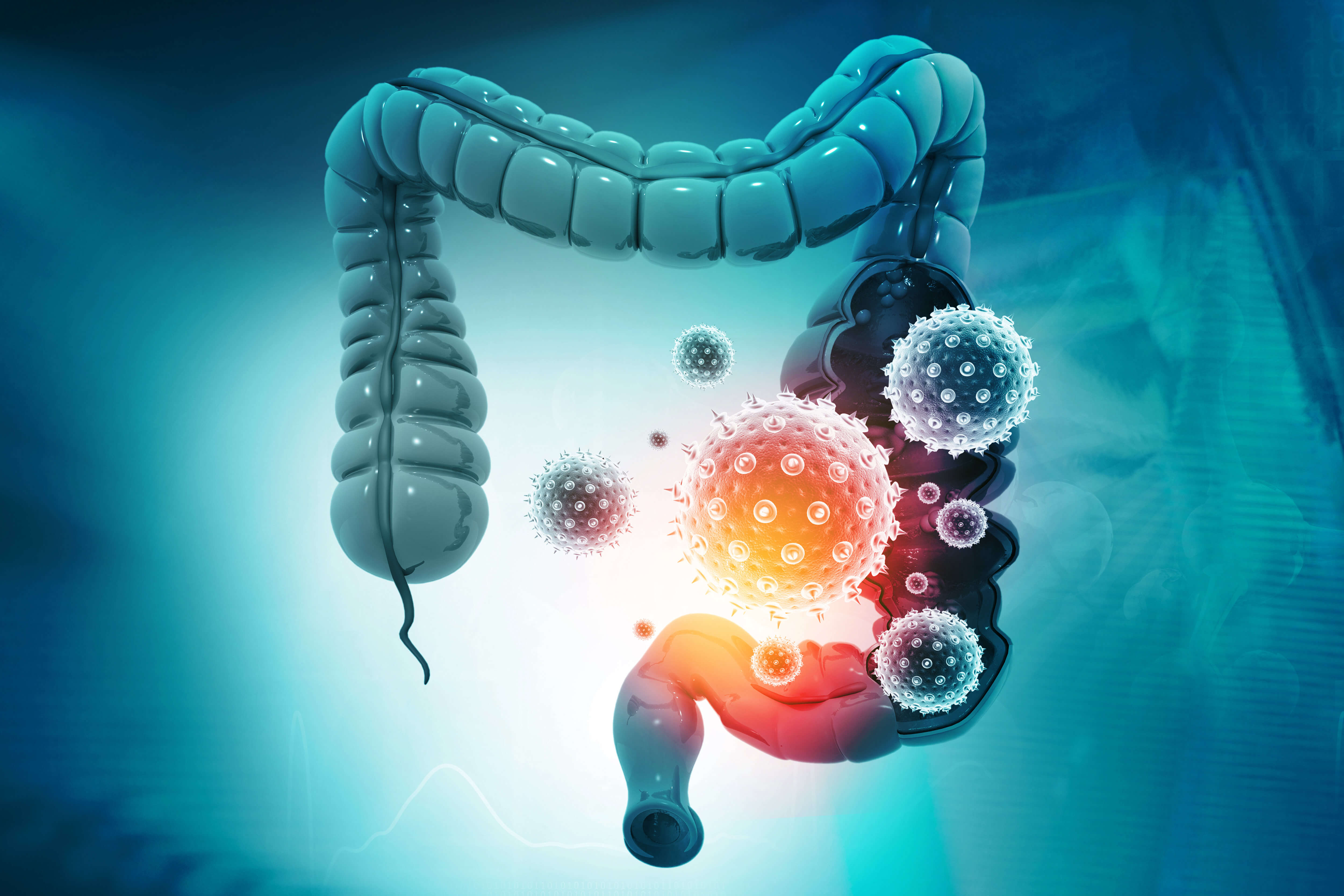Colon Cancer: Signs & Symptoms
The colon, or the large intestine, is one of the significant parts of the digestive system as it allows the undigested parts of your meal, water, and fibers to pass through and form feces. It is large and divided into three parts- ascending, transverse, and descending. The ascending colon is connected with the small intestine, and the appendix is located at the junction. Also, the end of the descending colon culminates into the rectum.
This particular organ is not usually affected by most diseases until and unless there is an infection. But colon cancer is one of the most common carcinogenic growths in the digestive system. In addition, its symptoms are related to an infection or Constipation, which people cannot usually distinguish from colon cancer symptoms.
Keeping this in mind, we have explained the general signs of colon cancer and the symptoms that appear in the later or advanced stages of the terminal disease.
What are the Symptoms of Colon Cancer?
There are various signs and symptoms of colon cancer that should be known beforehand. Usually, we can classify these symptoms according to the stages, but in this section below, we have discussed the most common ones people suffer from. This will give you an overview of colon cancer and its signs so that you can connect with your doctor soon and get the proton therapy treatment on time.
Diarrhea or Constipation
As already discussed, the colon takes part in the formation of feces or stool. Therefore, colon cancer can disrupt this standard functionality, leading to diarrhea or Constipation. Constipation is classified as difficulty passing this tool, while diarrhea is also termed loose stool. The symptom might vary from one person to another, depending on how the large intestine functions in the presence of cancerous growth. Usually, people suffer from both these problems during the later stages when cancer turns invasive and starts affecting several other parts of the colon, apart from where it originated first. This is why it's considered one of the first signs of colon cancer.
Changes in stool consistency, such as loose, narrow stools
One of the early symptoms of colon cancer is abrupt changes in stool consistency. For example, your stool might become loose and narrow suddenly, even when you didn't take any laxatives or ate food items that usually dilute the fecal consistency. Also, if colon cancer leads to Constipation, your stool will become quite complex and solid, causing extreme pain in the rectum as you continue pushing it outside your body. Unfortunately, although changes in stool consistency are common symptoms of colon cancer, it is often misjudged as some other disease, which is why cancer remains undetected for a prolonged time.
Blood in the stool, which may make stools appear dark brown or black
Usually, colorectal cancer is often termed carcinoma as it affects the epithelial cells lining the interior of the entire large intestine. Once the polyps grow larger, they result in the cancerous mass that soon becomes invasive once the cells break and affect other parts of the entire colon. Since the epithelial cells are damaged, the blood capillaries attached to those tissues rupture and release blood that mixes with the feces. One of the colon cancer symptom is the dark brown or black stool due to the presence of blood.
Bright red bleeding from the rectum
Bleeding from the rectum may be an important sign of colon cancer. In this case, the blood vessels near the end of the descending colon rupture, leading to medium to heavy bleeding from the rectum. The blood won't be mixed with feces. Instead, it will flow naturally and can lead to anemia. As the cancer advances, the bleeding will increase in volume, leading to loss of blood from your body that can lower the hemoglobin levels. Feeling tired and suffering from fever are some side effects you might experience once your colon starts bleeding excessively.
Irritable bowel syndrome
Out of several warning signs of colon cancer, irritable bowel syndrome is one of the most persistent issues one can face. In this problem, you will feel as if your body wants to proceed with defecation, but due to Constipation, you won't be able to pass the stool through your rectum. You might feel the pressure building in your lower abdomen and hips, but passing the stool will become difficult regardless of how much effort you give to push out the feces. Putting excessive pressure can also lead to bleeding as the blood capillaries near the rectum and anus will burst open.
Stage 3 or 4 symptoms (late-stage symptoms)
Knowing about symptoms in late stages of colon cancer are crucial so that you can easily distinguish them from any infection and consult the doctor at the earliest opportunity. During these late stages, you will suffer from all the abovementioned symptoms. Additionally, three other symptoms might affect your body during the late stages, especially when cancer starts to enter the metastasis stage.
Weakness
When the cancerous cells spread to other organs, your body will feel tired and exhausted most of the time. Due to loss of appetite, you won't be able to take food on time or get the appropriate calories required for metabolic activities. As a result, energy won't get produced, and you will automatically feel weak. Also, colon cancer is accompanied by blood loss from the body, leading to weakness.
Vomiting
Vomiting is also one of the symptoms that might arise in the late stages as cancer spreads to other parts or may cause severe obstruction in intestines.
Breathing difficulties
Sometimes, the cancerous cells in the colon can affect your lungs, causing breathing difficulties. There can be several symptoms, from shortness of breath to mild chest pain.
Conclusion
As we have discussed the significant colon cancer symptoms, it will become much easier for you to distinguish the problem from any infection. If you suffer from these issues, like blood in the feces or bleeding through the rectum, consult the doctor soon so you can get the treatment on time. Radiation therapy may be needed in many stages of colon cancer but at primary or metastatic sites. When indicated out of all radiation techniques, Proton therapy is often considered one of the best therapies, mainly due to its safety, higher success rate and reduced side effects.

Copyright © 2023 Apollo Proton Cancer Centre. All Rights Reserved





